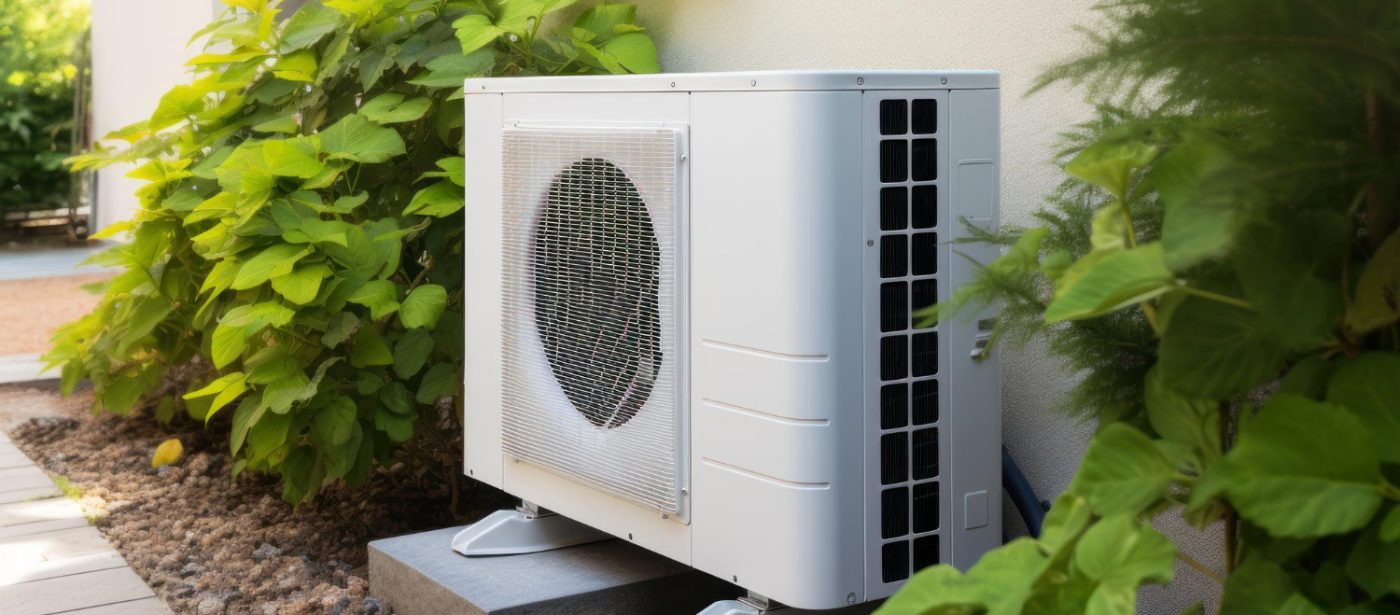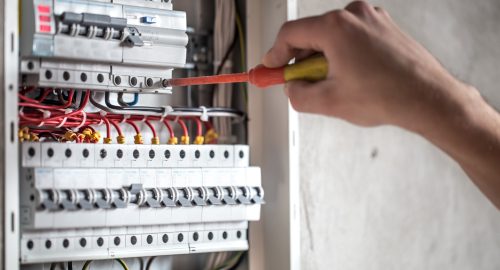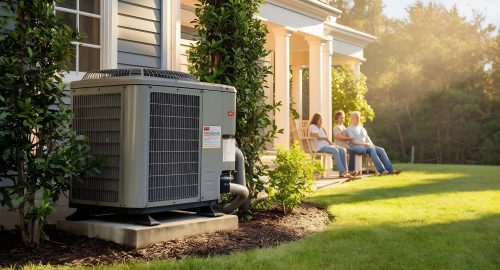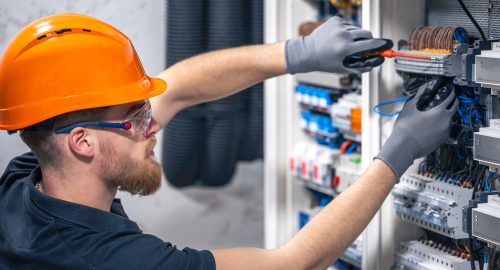Heat pump systems have become central to achieving energy efficiency in heating and cooling homes. Unlike traditional heating and cooling systems, heat pumps transfer heat rather than generating it, making them an innovative solution for homeowners looking to maintain comfort while reducing energy consumption.
Understanding How Heat Pumps Work
Heat pumps operate on a simple yet effective principle of heat transfer, which means they move heat from one place to another instead of generating it. In a heating mode, a heat pump extracts heat from the outside air or ground and transfers it indoors. Conversely, when cooling is needed, it reverses this process to expel indoor heat outside, thus maintaining comfortable indoor temperatures efficiently.
There are different types of heat pumps, each with unique advantages. Air-source heat pumps are the most common and draw heat directly from the air. They are relatively easy to install and can provide efficient heating and cooling in moderate climates. Ground-source or geothermal heat pumps, though more costly to install, offer greater efficiency by utilizing the stable underground temperatures. These systems can provide significant energy savings, especially in areas with extreme temperature variations.
By choosing the appropriate type of heat pump and ensuring professional installation, homeowners can enjoy enhanced comfort levels while optimizing energy use. Heat pumps are increasingly popular due to their ability to deliver consistent heating and cooling, while leveraging natural energy sources efficiently.
Benefits of Heat Pump Systems
One of the foremost advantages of heat pump systems is their remarkable energy efficiency. Unlike traditional heating systems that burn fuel to generate heat, heat pumps simply transfer existing heat, which requires less energy. This translates to significant cost savings on energy bills, making heat pumps a favorable investment over time.
The versatility of heat pumps makes them an excellent choice for all-season comfort. They function as both heating and cooling systems, eliminating the need for separate units. This dual capability ensures that homes remain comfortable throughout the year, regardless of external temperatures.
Heat pump systems have a positive environmental impact by reducing the carbon footprint. Since they use renewable energy sources like air or ground heat, they contribute to sustainable energy consumption. By opting for a heat pump, homeowners not only enjoy direct savings but also support broader environmental goals.
Investing in a heat pump system is a strategic decision for enhancing home efficiency. These systems provide an eco-friendly heating and cooling solution that combines comfort, savings, and sustainability. Engaging our professionals for installation and maintenance ensures optimal performance and longevity of the system.
Comparing Heat Pumps to Traditional Systems
Heat pumps differ significantly from traditional systems like furnaces and boilers, offering distinct advantages in efficiency and functionality. While furnaces and boilers primarily generate heat by burning fuel, heat pumps move heat, which is inherently more energy-efficient. This difference allows heat pumps to provide similar or better comfort levels with lower operational costs.
In terms of climate adaptability, heat pumps excel in moderate climates but have made advances in colder regions with improved technology. Heat pumps maintain efficiency ratings through innovative designs, making them comparable or superior to conventional heating systems in varied environments.
Long-term maintenance for heat pumps tends to be less intensive than that for fuel-burning systems. Regular checks by our technicians ensure the system operates efficiently, minimizing potential breakdowns. Additionally, heat pumps can integrate seamlessly with existing HVAC services, enhancing their appeal for homeowners looking to optimize their energy usage.
Factors to Consider When Installing a Heat Pump
When planning to install a heat pump, several considerations must be taken into account to maximize its benefits. One critical factor is sizing the unit correctly to match the specific heating and cooling needs of a home. An improperly sized heat pump can lead to inefficient operation and increased costs.
The location of the unit also plays a crucial role in performance. Proper spacing around the heat pump ensures optimal airflow and efficiency. Existing infrastructure, such as ductwork and electrical wiring, should be evaluated to support the installation of a new system. Upgrades like electric panel upgrades may be necessary for seamless integration.
It is essential to consult with our professionals to address these considerations effectively. Key questions to ask may include:
- Is my home compatible with an air-source or ground-source heat pump?
- What potential modifications are needed in my current electrical system?
- How frequently should the heat pump be serviced for optimal performance?
Conclusion
Heat pump systems represent a forward-thinking choice for homeowners aiming to enhance their home’s energy efficiency and year-round comfort. By understanding how these systems work and recognizing their benefits compared to traditional systems, users can make informed decisions for their heating and cooling needs. Proper planning and professional installation ensure that heat pumps operate at peak efficiency, providing reliable performance and cost savings over time.
At Stafford Home Service Inc, our professionals are dedicated to guiding you through the installation process and addressing your specific needs. Whether you’re looking to upgrade or install a new system, our expert team is here to provide tailored solutions that fit your home and lifestyle. Contact us today to learn more about how heat pumps in Golden Valley can transform your home’s climate control.








